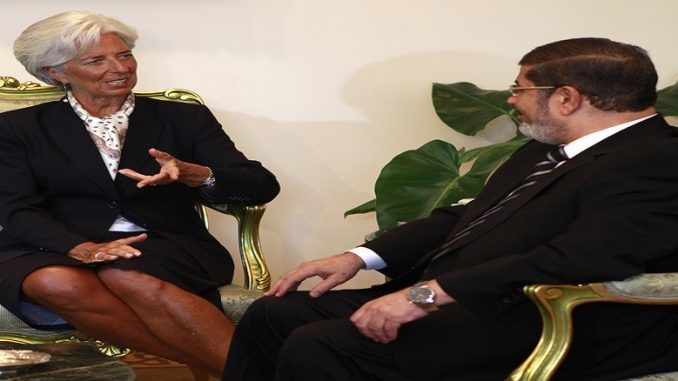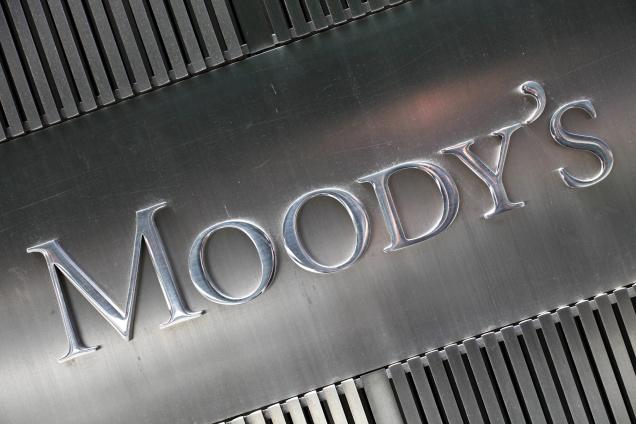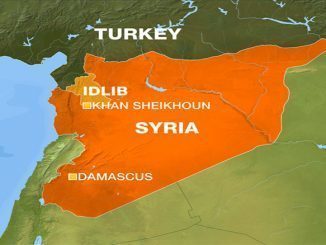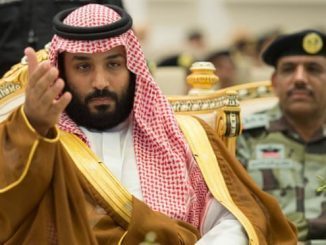
On July 1, 2012, when the Egyptian military junta – theoretically – handed over power to the elected authority, the foreign reserves then was only $ 15.5 billion against $ 36 billion early 2011 when Former President Hosni Mubarak was forced to step down. That is, the military junta spent more than $ 20 billion in about 17 months only.
By : Yahya Hamid*
In President Mohamed Morsi’s first meeting with Dr. Farouq El-Okdah, Governor of the Central Bank of Egypt (CBE) at the time, El-Okdah told the president that the foreign reserve situation was extremely dangerous and that he (the president) should act quickly in order to stabilize the foreign exchange rate, maintain dollar availability in banks to meet importers’ needs, and secure dollars needed for repayment of external debt benefits. President Morsi had to address all these issues immediately and face other internal financial problems: some of which was resultant from the nature of the stage, while most of them were fabricated and directed intentionally to thwart the new system.
These lines will focus on the negotiations between the government and President Morsi on the one hand and the International Monetary Fund (IMF) representatives on the other: What did the IMF want? How was the government response? Why did negotiations finally fail?
The talk about developments of Morsi’s negotiations with the International Monetary Fund (IMF) is one of the few important files that can be studied in order to understand the economic approach that President Morsi and the Freedom and Justice Party (of which Morsi was chairman before winning presidential elections) wanted.
Perhaps the study of decisions and laws at the time is one of the most important tools to understand the economic approach of the president and his party, but the file of negotiations with the IMF in general, and the issue of subsidy in particular, indicate that the economic orientation of Dr. Morsi and his government was radically different from the attitudes of previous governments, even if both used similar titles such as the protection of the low-income, the fight against inflation, or development of local resources, etc. However, amid similar discourses, the application on the ground is the best way to test any theoretical speech or any party programs.
New phase
Like other international institutions, the IMF was in a state of anticipation toward the new Islamic-oriented system. Also, prominent European countries as well as the United States adopted similar stances towards Egypt at the time; as there was no international decision to ban dealing with or provide help to the new regime of the North African country.
I think former US President Barack Obama described this situation so accurately when he was asked whether Egypt was still a US ally after the access of Islamists to power. Obama then said that “I don’t think we would consider them an ally, but we don’t consider them an enemy. They are a new government that is trying to find its way,” adding that Egypt’s government – at the time – responded to some events in ways that “may not be aligned with our interests”. What Obama wanted to say is that the relationship between the United States and the Egyptian government under Morsi was built on the basis of mutual interests. However, I do not intend here to analyze the authenticity of this, however I can confirm that the US-Egyptian relations at the time was based on parity, where each of the two equal parties was seeking achievement of its people’s interests.
In fact, the International Monetary Fund was seeking the interests of the international system it represents, as it only wanted to somehow control the new system in Egypt. On the other hand, President Morsi and his government sought Egypt’s interest through attempting to get the IMF loan, which was necessary for opening the door for more loans from other international institutions and banks, with no waiver of any constants as will be explained hereunder.
Different orientations
The IMF wanted the government of Morsi to implement what it calls a structural reform of the subsidy system, and accordingly raise prices on a gradual basis to all beneficiaries until subsidy is completely eliminated to make the state public budget get rid of all subsidy burdens, which cost about a quarter of the annual budget.
Through this approach, the IMF wanted to make sure that the loan it would provide to Egypt would be used for achieving sustainable development and that it would not be channeled into the subsidy bill or for bridging the financing gap. This is why the IMF representatives always reiterated that the Egyptian government during the Morsi era was in need for making bold decisions.
However, President Morsi was categorically convinced that the idea of canceling the subsidy should be preceded by a series of measures, including the elimination of corruption within the subsidy system, while maintaining partial subsidy for the low-income citizens; then, in time, other measures such as raising prices of some subsidized commodities could be discussed.
For example, the government had to primarily address the smuggling of subsidized oil which used to be sold on the black market, or smuggled abroad through some ports and sold either to commercial vessels or on the Jordanian black market, where the trade of smuggled oil from Saudi Arabia and Egypt was active due to the subsidy provided to the product by the governments of the two countries.
To save at least 25% of the subsidized oil that used to be smuggled away from beneficiaries, Morsi’s government decided that oil companies should buy the oil products at the market price and then regain the difference after the products reach the final beneficiary. In this way, the government wanted to ensure that oil products would not be sold on the black market, whether locally or abroad – and thus get rid of the subsidy burdens, as the IMF wanted to ensure.
Imagine that the oil subsidy bill would have fallen by at least 15% only through this item; and also imagine who was almost crazy about it. It is noteworthy that
most of the smuggled oil was heavily trafficked through the Ataka Port which is completely dominated by the Egyptian Armed Forces!!
There is a real mafia in terms of subsidy: Therefore, if you wanted to serve this mafia and meet the conditions of the International Monetary Fund at the same time, the easiest way is to raise the prices of oil products – where the oil product mafia would make benefits, albeit at a lower rate, and unfortunately the Egyptian citizen would bear the greatest cost, especially in light of the bad economic conditions and low monthly income.
In fact, there was no explicit opposition from the International Monetary Fund toward such measures, or IMF procrastination to reach an agreement; they only wanted to make sure that the government was able to implement this mechanism at first. Therefore, the government then accelerated the implementation of the subsidy card system, which would have achieved the arrival of subsidy to the real beneficiaries; and thus citizens could have been given partial subsidy – such as to provide 150 liters of petrol a month at subsidized price, and then citizens buy their extra needs at market prices.
This detailed narrative is important to emphasize that there were several ways to avoid exhausting and humiliating the citizen under the pretext of bearing the bill of economic reform. The Morsi government was to undertake the administrative reform and fight the subsidy mafia first; and then would ask citizens to bear their share in these reform decisions.
Methodology of the coup
There is a systematic will to the coup government for transferring the subsidy burden very quickly from the state budget to the citizen budget, which indicates complete ignorance or perhaps insistence on exhausting the Egyptian citizen to move from the waiver of luxury goods to the waiver of basic commodities, leading to a rapid decline from the middle and proletarian classes below the level of poverty and extreme poverty.
The government of the military coup has signed an agreement with the IMF to obtain a $ 12 billion loan, enabling it to address more international institutions for more loans. As it is known, Egypt’s foreign debt has now increased to over $ 92.5 billion, more than 100% of all the debts that Egypt has borne throughout its history.
The coup government lifted the subsidy and made other decisions such as floating the pound; and adopted mega projects, such as the administrative capital and the Suez Canal shunt project. After the Egyptian pound flotation, the state forces the citizen to bear the difference between the subsidized price and the world price: For example, after the citizen was due to bear a difference of 4 pounds for a liter of gasoline in 2012, he is prompted to bear a difference of 13 pounds in 2017/2018.
Government duties
It is important to note that President Morsi’s treatment of the subsidy issue had other dimensions, including enhancement of domestic products by ensuring that the subsidized product was manufactured or planted locally. In case of being prompted to import strategic items such as wheat and oil from abroad, relevant ministries were asked to negotiate seriously to reach the best competitive prices – unlike the Sisi government’s present corruption in deals to import wheat from countries such as Ukraine, Russia and France. During Morsi’s era, the government had to adopt clear and supportive policies for local produce, such as increasing the areas cultivated with wheat, supporting the farmer. At that time, the government also conducted real negotiations with foreign partners in Egyptian oil fields in the interest of the homeland, such as details of negotiations with BP and BG in this regard. Many got concerned when they realized that there was a real political will to change the form of economic dealings, and that citizens were part of the process of change. Also, citizens were the last party that would be required to bear reform burdens thanks to a respectable regime that was defending their rights, fighting internal corruption, and freeing itself from blind subordination to the international system.
However, the bloody coup d’état that was led by Abdel-Fattah Al-Sisi on July 2013 prevented the emergence of these projects. In fact, Sisi’s cancellation of the Morsi government projects and its serious negotiation with the International Monetary Fund, and the Sisi regime’s crazy rush for demanding more loans, indicates that Morsi government was much more siding with the citizen and the homeland. Although this approach was primarily a conviction of President Morsi, it soon turned to a general spirit that the government adopted in its negotiations with the IMF and other institutions such as the European Development Bank and others.
Conclusion
Unfortunately, the future view of the Egyptian economic situation is not optimistic at all. The regime is aware of what it is doing and will maintain imposing more burdens on Egyptian families that that can no longer bear. Egypt will move further into disintegration and poverty, while General Sisi comes out to tell us of his pride in the people who have born the bill of economic reform, and that soon and very soon everyone will enjoy the results. However, the next day the coup leader makes more decisions that lead to increased prices of products and services and increase people’s suffering.
The approach of President Morsi’s government was only an indication that the Egyptian people had an alternative; a real alternative that certainly frightened all stakeholders. Perhaps, ordinary citizens were not aware of the benefit of this approach at the time as they were not accustomed to such kind of (sincere) ruler. However, Morsi’s only one-year term as president certainly proved that one day there was a different approach that is totally different from what a tyrannical and failed regime has done for more than six decades. Obviously, Morsi’s government sought over a few months to improve Egypt’s bad economic conditions, siding with the homeland; only the homeland.
*Yahya Hamid is Egypt’s Minister of Investment in the government of Dr. Hisham Qandil during the tenure of President Mohamed Morsi.



